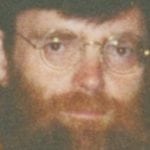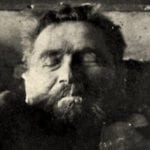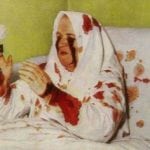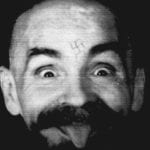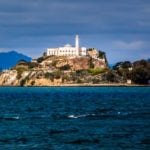 Weird Stuff
Weird Stuff  Weird Stuff
Weird Stuff  Miscellaneous
Miscellaneous 10 LEGO Facts That Will Toy with Your Mind
 Misconceptions
Misconceptions 10 Widespread Historical Myths and the Texts That Started Them
 Crime
Crime 10 Incredible Big-Time Art Fraudsters
 Movies and TV
Movies and TV 10 Most Influential Fictional Objects in Cinema History
 Our World
Our World Top 10 Real Almost‑Cities That Never Materialized
 Technology
Technology 10 Unsettling Ways Big Brother Is (Likely) Spying on You
 Music
Music 10 Chance Encounters That Formed Legendary Bands
 Space
Space 10 Asteroids That Sneaked Closer Than Our Satellites
 Sport
Sport The 10 Least Credible Superstars in Professional Sports
 Weird Stuff
Weird Stuff 10 of History’s Greatest Pranks & Hoaxes
 Miscellaneous
Miscellaneous 10 LEGO Facts That Will Toy with Your Mind
 Misconceptions
Misconceptions 10 Widespread Historical Myths and the Texts That Started Them
Who's Behind Listverse?

Jamie Frater
Head Editor
Jamie founded Listverse due to an insatiable desire to share fascinating, obscure, and bizarre facts. He has been a guest speaker on numerous national radio and television stations and is a five time published author.
More About Us Crime
Crime 10 Incredible Big-Time Art Fraudsters
 Movies and TV
Movies and TV 10 Most Influential Fictional Objects in Cinema History
 Our World
Our World Top 10 Real Almost‑Cities That Never Materialized
 Technology
Technology 10 Unsettling Ways Big Brother Is (Likely) Spying on You
 Music
Music 10 Chance Encounters That Formed Legendary Bands
 Space
Space 10 Asteroids That Sneaked Closer Than Our Satellites
 Sport
Sport The 10 Least Credible Superstars in Professional Sports
10 Forgotten Facts About The World’s Most Infamous Terrorist
In today’s world, the threat of terrorism is real and ever present. For many people, 9/11 served as a starting point for these worldwide threats.
But there was once a turbulent time that was just as perilous as the one we’re living in today. In the 1970s and ’80s, the most feared man in the world—Carlos the Jackal—was behind numerous terror attacks throughout Europe.
10 He Was Born To Be A Terrorist
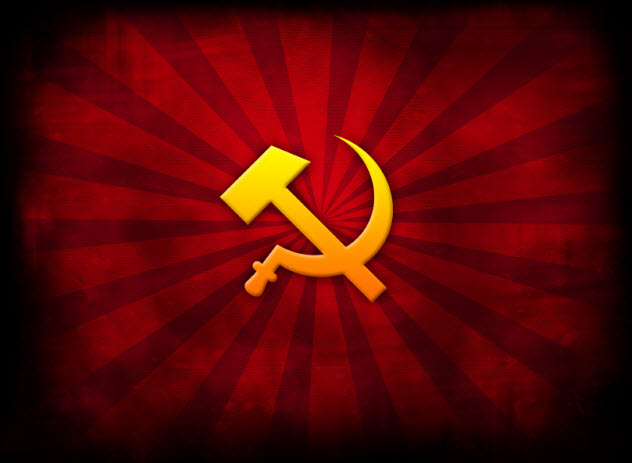
Many revolutionaries claim that they’re doing what they were born to do, but few have the lineage of Venezuelan-born Carlos the Jackal. Jose Altagracia Ramirez Navas, Carlos’s father, was a successful lawyer with strict Marxist beliefs. His wife, Elba Sanchez, pleaded with her husband to give their first child a proper Christian first name.
Jose would not even entertain the thought. “The biggest man in all of humanity is Vladimir Ilich Ulyanov, alias Lenin,” he said. “Humanity before the womb is divided into two periods. Before and after Lenin, not Christ who was an ordinary, run-of-the-mill man.”
On October 12, 1949, the couple welcomed Ilich Ramirez Sanchez (later known as Carlos the Jackal) into the world. His father dreamed that Ilich would be a perfect communist, as would his appropriately named siblings, Vladimir and Lenin.
Lenin worked in the oil industry in Venezuela and was known to hold his father’s teachings closely. Vladimir is known more for being an apologist for his terrorist brother. But neither brother took his name to heart like Ilich did.
9 Carlos Emerges
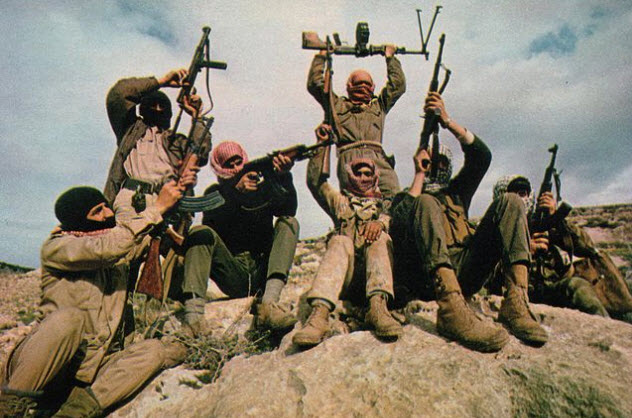
Ilich came from a dysfunctional family. As a youth, he was engrossed in South American communism and trained with revolutionary groups in the area. When he was in his late teen years, his mother—long divorced from her communist husband—shooed her children to London.
The young Ilich used that time to hone his playboy skills, wooing women and drinking heavily. But Jose still had influence over his children. He facilitated the entry of Ilich and his brothers into Moscow’s Patrice Lumumba University, a training ground for third world communist leaders and revolutionaries.
Ilich was still quite the partyer and rule breaker in Russia. That didn’t fit too well with the strict Communist Party bylaws. He had already been kicked out of the Communist Party of Venezuela when Patrice Lumumba University finally had enough and expelled him for supporting a Palestinian protest.
But it was with the Palestinians that Ilich found his calling. Shortly after departing Moscow, he traveled to the Middle East and joined the Popular Front for the Liberation of Palestine. Bassam Abu Sharif, a feared terrorist in his own right, gave Ilich the code name “Carlos.”
Despite being a bit lazy for a revolutionary, Carlos went on his first assignment in England under the guise of being a student enrolled at the London School of Economics.
8 The Jackal Arrives
For a few years, Carlos remained undercover in London as his brothers-in-arms carried out attacks throughout the world. The most notable was the attack on Israeli athletes at the 1972 Munich Olympics.
After the Israeli government retaliated by hunting down and killing the terrorists who had murdered their athletes, the Popular Front tasked Carlos with his first real solo mission—to kill a prominent Jew as revenge.
Joseph Sieff, a popular retailer and respected member of London’s Jewish community, was president of Marks & Spencer. Given Carlos’s training, you’d probably expect him to enter Sieff’s home like an assassin in a spy movie would.
But instead, Carlos wrapped himself up in some warm clothes on a cold December day and walked up to the front door. The butler answered to a gun pointed at him and a simple command: “Take me to Sieff.” Carlos walked upstairs to the bathroom where Sieff was getting ready for dinner and shot him in the face from 1 meter (3 ft) away.
Then Carlos coldly stood over Sieff’s fallen body and fired again. But the gun misfired. Carlos fled—all the way to Paris eventually. Sieff survived the head wound because the bullet had bounced off the bone between his nose and upper lip.
In Paris, Carlos stepped up his game. He carried out a series of bombings and assassination attempts, all while posing as a student again. A Lebanese compatriot, Michel Moukharbal, came under the suspicion of Paris authorities. Moukharbal then led police to Carlos’s Paris apartment.
At that time, police didn’t suspect Carlos of being a terrorist. Instead, they thought that he could lead them to Moukharbal‘s true collaborators. After allowing the police and Moukharbal into his apartment, Carlos entertained them with drinks and smiles.
While the police were distracted, he produced a machine pistol and opened fire. Carlos killed two police officers, wounded another officer, and murdered Moukharbal, his former coconspirator. Police tracked Carlos to London under his real name and discovered a flat that was a safe house.
A reporter for The Guardian tagged along on the investigation and noticed Frederick Forsyth’s popular novel The Day of the Jackal in a bookcase in the flat. The most infamous international terrorist now had a complete nom de guerre: Carlos the Jackal.
7 OPEC
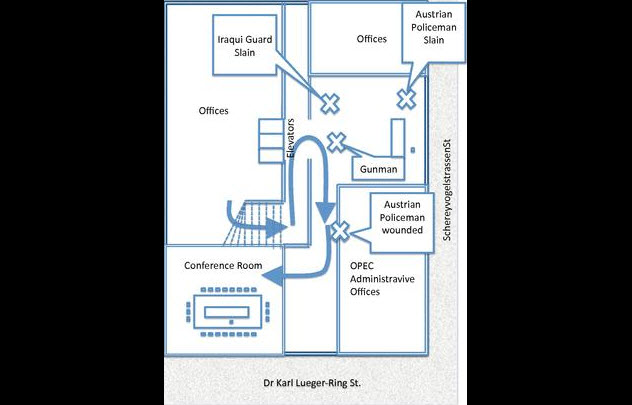
Although Carlos now had a dashing name, he didn’t really have the curriculum vitae to match it. Yes, he was a murderer, but Carlos was aiming for something that would make him infamous.
On December 21, 1975, OPEC scheduled a meeting in Vienna, Austria. Carlos led a six-person team—including Germans from the Baader-Meinhof gang—in an assault befitting the persona he had molded.
The terror cell went right through the front door and entered the conference, killing one policeman, an Iraqi, and a Libyan. The group then captured the entire OPEC delegation and set forth their demands.
Fearing the worst, the Austrian government complied, reading a message of Palestinian support every two hours to assure that killings didn’t occur every 15 minutes. The ordeal spilled over to a second day, and the rest of Carlos’s diabolical plan came to fruition.
After the terrorists freed some Austrian hostages, the remaining 33 boarded a bus to go to a waiting DC-9. Five oil ministers were forced to board the plane. The other hostages were freed on the tarmac.
The terrorists ordered the plane to fly to Algiers and then Tripoli. There, the Algerian and Libyan ambassadors were released, respectively. The terrorists jumped between Algeria and Libya while negotiating their free passage and a payment rumored to be almost $50 million in exchange for the release of the remaining hostages.
After the last hostages were finally released, the terrorists flew to Tripoli, where they escaped. The name of Carlos the Jackal was now known worldwide. Later, it was learned that Gabriele Krocher-Tiedemann had killed the officers and the Iraqi. Carlos had killed the Libyan when the man grabbed Carlos’s machine gun. Pulling a revolver from his belt, the Jackal had executed the Libyan.
From then on, every future terror attack would be tied to Carlos, whether he was involved or not. Finally, he had the attention he craved. Carlos the Jackal was the most infamous man in the world.
6 France
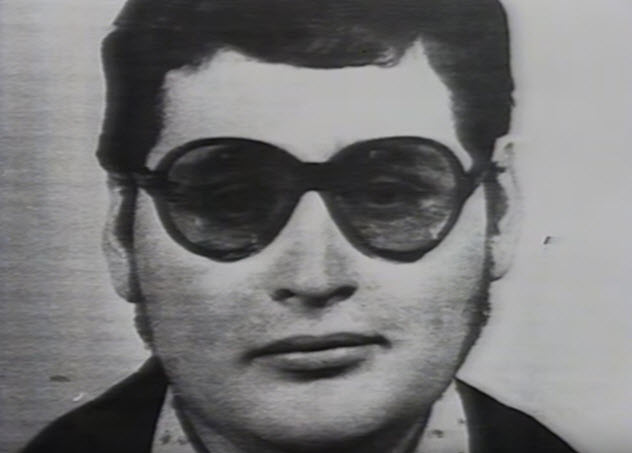
The majority of his attacks focused on France. In addition to the 1975 murders of the police officers and his former partner in crime, the Jackal also attacked pro-Israeli newspapers and an Israeli airliner.
Even before he was known as the Jackal, Carlos walked into Le Drugstore, which was owned by Jews, and calmly lobbed a grenade into the crowd of unsuspecting patrons. Then he simply turned and walked out as the device exploded, killing two and injuring 30.
It wasn’t until the 1980s that an action in France could undoubtedly be tied to Carlos. His first wife, Magdalena Kopp, and comrade Bruno Breguet attempted to carry out an attack planned by Carlos that could have had deadly consequences. Close to midnight on January 18, 1982, the two armed an RPG-7 rocket launcher and aimed for a nuclear reactor on the Rhone River.
Five missiles struck the outer shell, but none had the power to penetrate the reactor. Two months later, a misidentification of the pair as thieves led a security guard to phone the police. After a chase on foot, the two were apprehended.
In an act of civility, Carlos wrote a letter demanding the release of his wife. The French declined. So the Jackal did what he did best—terrorize. Attacks on French interests throughout the Middle East and in the homeland put everyone on edge. The most spectacular happened on March 29, 1982.
The Trans-Europe Express ran its usual route from Paris to Toulouse that evening. Jacques Chirac, the future prime minister of France and then-mayor of Paris, was rumored to be aboard the train. It turned out that Chirac wasn’t aboard, but that didn’t stop the terrorists.
The Jackal and his associates planted 10 kilograms (22 lb) of pentrite on the train. As the train traveled at a high speed through southwestern France, the giant bomb exploded, killing five and injuring 30. Only excellent steering by the conductor prevented the train from derailing and causing more death and injury. Carlos was now France’s No. 1 enemy.
5 He Was A Poor Planner
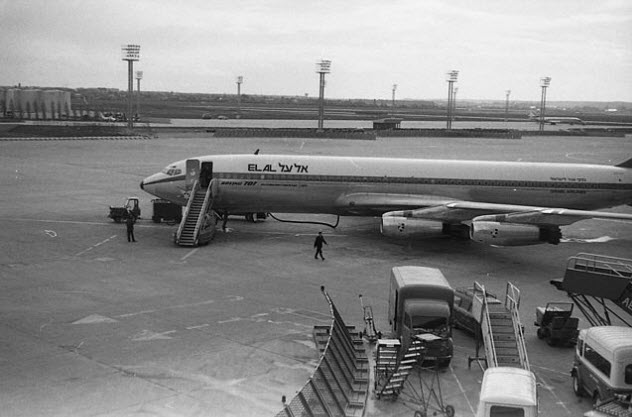
Carlos the Jackal was a feared name and the face of a faceless group. But he actually put a lot more into honing the legend of “the Jackal” than into succeeding at crime. Yes, he murdered and was highly dangerous. But he also planned some of the dumbest terror attacks ever.
By 1975, his attacks on Jewish-run establishments had taken their toll. So he decided to aim for a bigger target, an Israeli airliner. Johannes Weinrich and Carlos traveled to Orly Airport on January 13, 1975. On a side road that connected terminals, the two exited their rented Peugeot with a rocket launcher and waited for a target personally picked by Carlos—an El Al 707 destined for New York.
The 136 passengers—mostly American tourists—had no idea that they were pawns in a potentially deadly terror plot. Even so, the plan was unbelievably stupid. The terrorists had no cover. Everyone could see them.
They intended to pull up, whip out a rocket-propelled grenade (RPG), wait for one specific plane to taxi, and hit that airplane with the RPG. But they had zero experience firing an RPG.
Carlos let Weinrich fire the weapon. The first shot sailed in front of the nose of the plane and struck a vacant room. A quick reload and second firing—which resulted in the backfire blowing out the Peugeot’s window—missed the El Al again and struck an almost empty Yugoslavian DC-9. Neither rocket exploded, limiting the destruction to a few broken plates and some cosmetic damage.
Unhappy with their failure, Carlos and Weinrich tried again a few days later with more terrorists. This time, the plan was to move to an observation deck to take a shot at another El Al on a Sunday.
The big problem was the crowd of people observing the planes. In fact, the deck was so crowded that the terrorists could barely get into position to take a shot. Also, people noticed them walking with a rocket launcher.
A police officer opened fire on the terrorists. Amazingly, no civilians were injured in the firefight, and Carlos quietly slipped away. The remaining tough-guy terrorists took hostages to escape: a pregnant lady, a four-year-old girl, and a priest.
Eventually, the hostages were released unharmed, and the terrorists got away. But they had failed again. Carlos was 0–2 with his rocket launcher plan.
4 He Was More Playboy Than Terrorist

Ilich Ramirez Sanchez had come from money. All the terror training in the world couldn’t change that. So naturally, Carlos the Jackal kept the desire for the good life while fighting against those things that had enriched him in the first place.
Carlos’s mother was a socialite, which gave him a lot of experience on the party scene. In London and Moscow, he was known as quite the ladies’ man. But he didn’t care or even see a problem with his lifestyle.
“I like good food. I like to drink, and I like good cigars,” he once explained. “I like to wear good shoes. I like to play cards, poker, and blackjack. I also like parties and dances. But I am against ‘possessions.’ ” That little caveat is how Carlos justified his lifestyle choices.
His activities in the 1980s put him on the payroll of Eastern European nations. He kept millions in Hungarian and Czechoslovakian banks, owned a Ferrari, and legally carried a firearm in East Germany. According to rumor, he kept the bulk of the $50 million ransom from the OPEC attack for himself. He was either a walking paradox, a really bored rich kid, or both.
3 The Fall Of Communism Hurt Business
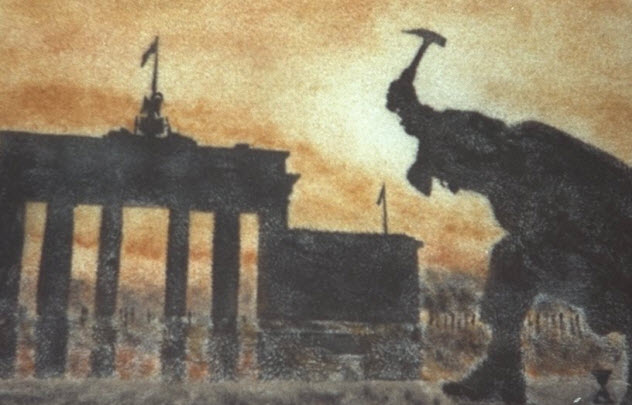
After his string of attacks in France, Carlos remained relatively quiet in the latter part of the 1980s. He was likely just following orders because Carlos the Jackal was a state-sponsored terrorist.
Carlos first partnered with East Germany in the mid-1970s. Under the protection of East Berlin, the Jackal could travel easily to do their bidding. Most of the attacks in the 1980s—including a deadly attack on Radio Free Europe in Munich—were at the behest of an Eastern Bloc nation.
Although Carlos liked to fashion himself as a radical, he knew where his bread was buttered. Stasi, the East German secret police, told the Jackal to lay off West German attacks during Soviet leader Leonid Brezhnev’s visit there in 1981. Carlos complied.
But the biggest problem with being sponsored by communist countries was that they were fading fast. After the Berlin Wall fell in 1989, Carlos was running out of work and places to stay.
Eventually, he retreated to Sudan to hide out. But after the fall of the Soviet Union in 1991, Sudan no longer felt obliged to keep his secret. Carlos the Jackal was available to anyone who was willing to make a deal with Sudan.
2 He Was Shooting Blanks
There wasn’t much for Carlos to do in the 1990s. All his former employers were gone, and he was more of a dinosaur from a bygone era. He settled in Sudan, going back to his terrorist roots in a way. His first work had been for Muslim extremists, and Sudan was a safe haven for their ilk.
But Carlos wasn’t of much use to Sudan. Long before his arrival there, the Sudanese had engaged in clandestine negotiations and leveraged the Jackal to get some much-needed support from France. Philippe Rondot, a French intelligence officer who had been tracking Carlos since the 1970s, was put in charge of the operation to capture Carlos and return him to France.
Carlos’s first wife, Magdalena, had left him long ago and taken their daughter, Elbita, with her. He longed for more children. Although his second wife, Lana, was more than willing, Carlos needed a little help. The Jackal had a low sperm count and required surgery to repair a varicocele in his right testicle.
Still dazed from the surgery on a hot African day in August 1994, Carlos received troubling news from a Sudanese official who marched past his bodyguards outside the recovery room. Apparently, there was a plot to kill Carlos. The officer volunteered to move him to a safe house.
But it was all an elaborate ruse. After a day in the safe house, Carlos was transferred to the French police, who placed the groggy Jackal on a plane and whisked him to France. The world’s most feared terrorist had finally been captured.
1 He’s Still Finding Ways To Get Attention
Ilich Ramirez Sanchez faced murder charges in France. It didn’t take the system long to find him guilty—twice. As of January 2016, he faces yet another charge for the 1975 grenade attack that killed two people.
But even in prison, Carlos has found ways to occasionally get back into the limelight. He announced that he converted to Islam and married his lawyer. This gave him two brides, which is perfectly legal as a Muslim.
But it was his litigious ways that really raised eyebrows. Sure, Marxism holds that capitalist law is a tool of the bourgeois. But desperate times call for desperate measures, even for a communist.
Carlos sued the French filmmakers of a three-part TV series entitled Carlos for what he called the violation of his “biographical image.” He also sued for an illegal arrest, his extraction from Sudan. But he lost that case. In the end, perhaps Carlos revealed who Ilich really was—just a guy who craved attention from the world, even if he had to become Carlos the Jackal to get it.
Jake wrote a trivia e-book filled with crazy stuff like the kind you just read in this list. You can follow him on Twitter for more useless facts.
